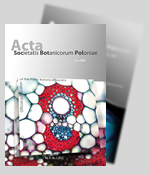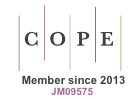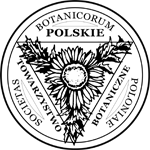Abstract
Fragmented distribution, the breeding system and effects of genetic drift in small-size populations occurring at edge of the species range play an important role in shaping genetic diversity of such a species. Melica transsilvanica is a plant rare in the flora of Poland, where it reaches the northern limit of its continuous range. Amplified Fragment Length Polymorphism (AFLP) DNA profiling method was applied to measure genetic diversity among and within populations of M. transsilvanica. Additionally, genetic relationships between M. transsilvanica and Melica ciliata, two closely related species, were explored. A total of 68 plants from 7 populations of M. transsilvanica and 24 plants from 2 populations of M. ciliata, collected in Poland and outside it, were analyzed. Using 294 AFLP fragments from 3 primer combinations, accessions were grouped into two major clusters associating with M. ciliata and M. transsilvanica, respectively. Further, two subclusters, corresponding to the samples collected from the Pieniny Mts and from the Kraków - Częstochowa Upland were clearly distinguished within the M. transsilvanica group. The hierarchical AMOVA exhibited significant genetic distinction between these geographic regions (60.89%, p < 0.001). The obtained results showed that the most genetic diversity resided between the populations of M. transsilvanica (86.03%) while considerably lower genetic variation was found within the populations (13.97%), which is consistent with the results reported for self-plants. The low level of AFLP genetic variation of M. transsilvanica can be caused by the geographic isolation of populations, which preserves the dominant self-mating breeding system of the species. Individual populations of M. transsilvanica are characterized by isolated gene pools differing by a small number of loci.
Keywords
Melica transsilvanica; Melica ciliata; AFLP; genetic diversity; habitat fragmentation; nonrandom mating







